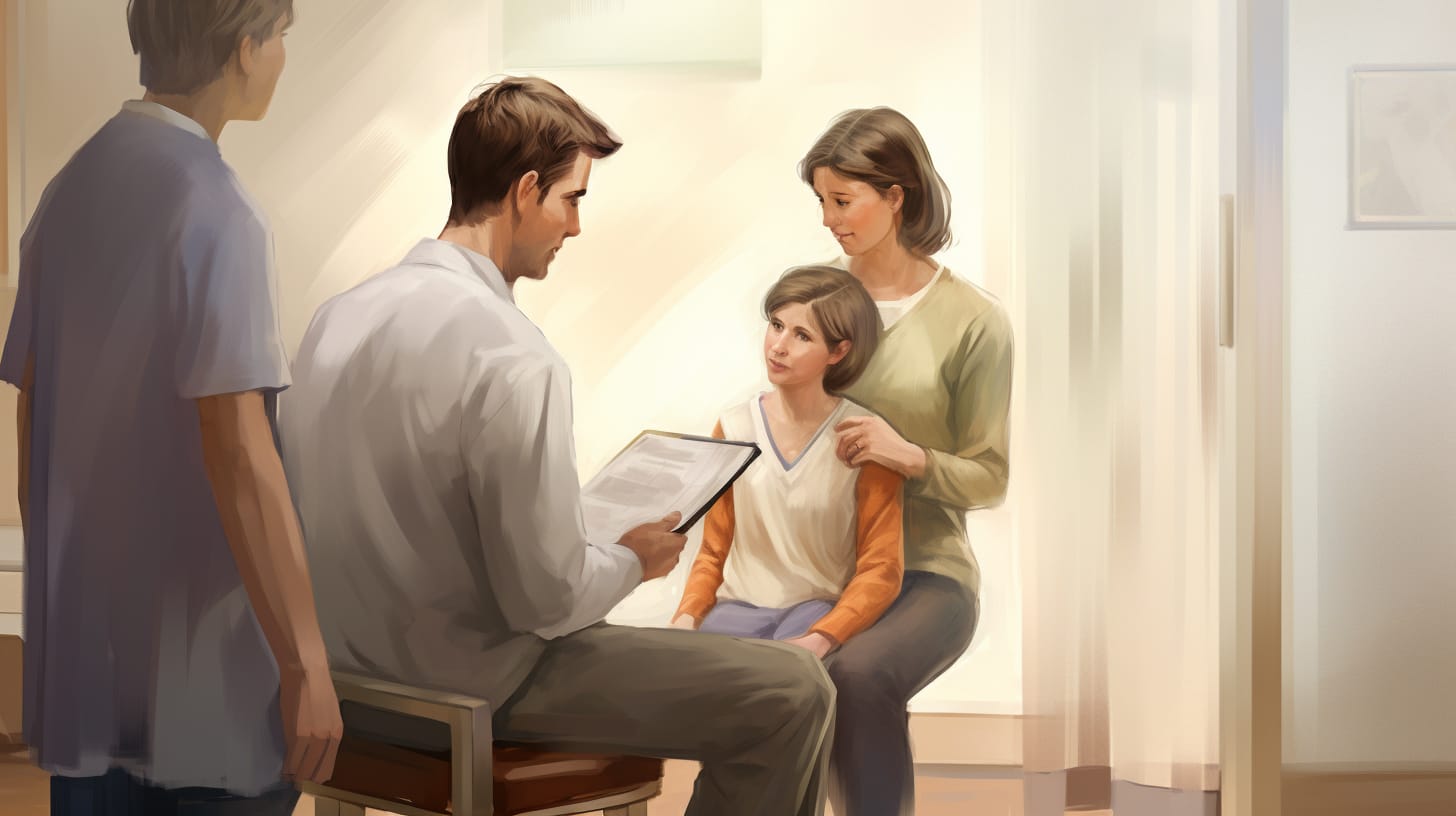- by Tim Thompson
Obtaining The Medical Certificate Of Cause Of Death
In the challenging time of loss, understanding the administrative aspects such as issuing a medical certificate of cause of death, registering the death, and managing the deceased’s estate can provide some guidance and order. This article aims to describe the process and the significance of registering a death with a medical certificate of cause of death based on gov.uk guidelines.
What occurs when someone dies?
Process in England and Wales
When someone dies, a series of administrative tasks must be completed. As per gov.uk regulations, this starts with the medical practitioner attending the death to confirm and subsequently register the death. In England and Wales, the process necessitates a medical certificate of cause of death, issued by a GP or hospital doctor, which must be taken to the local council’s register office within 5 days (or 8 days in Scotland). A death certificate is then given, citing the cause of death.
What happens in a hospital or care home setting?
If someone dies in a hospital or care home, the staff in these establishments can issue the medical certificate and notify the next of kin. These establishments have a procedure to follow, and the death must be reported to a designated person, usually the medical practitioner who will then complete the medical certificate.
Estate management after death
Once a death is registered, the executor of the estate can begin the process of managing the deceased’s estate, which may include notifying the bank, disbanding tenancies, and informing local authorities.
How to get a medical certificate of cause of death
Role of the GP in issuing a medical certificate
The GP or a hospital physician is usually responsible for issuing a medical certificate. In Northern Ireland for instance, if a GP has seen the patient within 28 days of death, they can issue a medical certificate of the cause without the death being reported to a coroner. If the cause of death is unclear, however, as mentioned in the local council guideline, the death may be reported to a coroner for further review.
Obtaining a certificate in a care home setting
In a care home environment, when a patient dies from natural causes or a long-term illness, the GP or medical practitioner who has been treating the patient can issue the certificate, and death can be registered with the local council. Sometimes, if the death was unanticipated, the care home is required to report the death to the coroner.
How to properly manage paperwork
Once the medical certificate is issued, it should be given, along with the deceased’s medical card, to the registrar at the register office. Once registered, copies of the death certificate are provided, which can be used to settle the deceased’s affairs.
What is the significance of a death certificate?
The legal requirement of registering the death
In the UK, a death must be registered within 5 days (8 in Scotland). As outlined on the Northern Ireland government website, registering the death is the official way of recording a person’s death. It is a legal requirement and allows the final affairs of the deceased to be dealt with, such as burial or cremation. A death certificate is also required for the funeral director to arrange the funeral.
Information a death certificate includes
The death certificate contains important information about the deceased, including the cause of death, the date and place of death, and details about their identity, such as name, date of birth, and occupation. It’s a key document for settling the deceased’s affairs.
How the death certificate helps in processing the deceased’s estate
The death certificate is a vital document required to process the deceased’s estate, including probate (validating the will), tax purposes, or dealing with pension claims. As advised on gov.uk, having multiple copies of the death certificate greatly helps in registering a death.
Understanding the Role of the Coroner in Certifying Death
When is death referred to the coroner?
A death is referred to the coroner in situations where the death is sudden, unexplained, violent, or unusual. Also, as outlined in Northern Ireland’s regulations, if a GP hasn’t seen the patient within 28 days of death, the death must be reported to a coroner.
Why a post-mortem might be necessary
A post-mortem might be necessary to determine the cause of death. This is particularly the case when the death occurred under suspicious circumstances, after an accident, or if it was sudden and unexplained.
Coroner’s role in determining unnatural causes of death
The coroner may have a critical role in investigating deaths to determine whether they were due to natural causes or not. In cases of uncertain cause of death, the coroner may order a post-mortem, hold an inquest, and issue a certificate to allow for cremation or burial.
Guidance for doctors completing the medical certificate of cause of death
Anticipated versus unanticipated death
When completing a medical certificate, doctors must be precise when stating the cause of death. For anticipated death, such as patients in end-stage illness, the GP can certify the death as stated on gov.uk. If the death is unanticipated, it must be reported to the coroner.
Stating the cause of death for the last illness
If a specific disease like cancer or heart disease was the cause of the death, it must be listed on the certificate. Any other medical conditions that `contributed to the death should also be mentioned.
The impact of diseases like coronavirus on certifying death
The coronavirus pandemic has brought about changes in how doctors complete medical certificates of cause of death. COVID-19 deaths can be certified without a post-mortem, provided the disease was diagnosed and there’s no reason to suspect an unnatural cause that contributed to the death.
Q: What is the role of a funeral director in understanding the medical certificate of cause of death?
A: A funeral director guides the family through the steps after someone has died, which includes explaining the medical certificate of cause of death. They can’t certify the death, which means they’re not the ones who confirm the immediate cause of death. However, they’ll explain what the certification means and how you can use it to register the death with the local council.
Q: What happens if a death occurs during a cremation process?
A: If a death occurs during a cremation process, the person who was tasked with the responsibility to cremate wouldn’t be able to issue the medical certificate of cause of death. In such cases, the death would likely need to be referred to the coroner.
Q: When do we need to report a death to the coroner?
A: A death must be reported to the coroner when the cause of death is clear but the person who was going to certify the death hasn’t seen the body after death, or when the death was sudden, violent, or unnatural. The coroner will then investigate to establish the cause of death.
Q: How do we certify the death if someone dies in a hospital?
A: If a person dies in a hospital, the doctor who attended the patient in their last illness is usually able to issue the medical certificate and certify the cause of death, given that they have seen the deceased during the last 14 days (28 days in Northern Ireland).
Q: In which circumstances a death is referred to the coroner?
A: A death is referred to the coroner when the cause of death is not clear, the death was sudden, unusual, or happened in prison or police custody. Some key factors to whether a death should be referred include if the death cannot be explained, was unexpected or the person had not been seen by a medical practitioner during their last illness.
Q: Can you certify the death if someone dies abroad?
A: If someone dies abroad, the death will need to be registered according to the rules in that country. You’ll usually need to get a death certificate from that country. You might also need to register the death with the UK consulate or embassy, or you can report the death to the UK government after the person is buried or cremated abroad.
Q: What is the role of the local council in certifying a death?
A: The local council’s role is to register the death after receiving the medical certificate of cause of death. They don’t certify the cause of death but they are the authority that keeps these records. Registering the death with the local council is a necessary step before a funeral or cremation can take place.
Q: How has the Coronavirus Act 2020 affected the protocols of certifying a death?
A: The Coronavirus Act 2020 made temporary changes to death certification, including removing the need for a confirmatory medical certificate for a cremation to take place and extending the list of people who can register a death. These changes were made to help us improve the death certification process during this crisis.
Q: Is there any personal or financial information contained in the medical certificate of cause of death?
A: No, the medical certificate of cause of death should only contain information regarding the cause of death. It shouldn’t contain any personal or financial information about the deceased, as this would breach confidentiality rules.
Q: What is the process for obtaining a medical certificate of cause of death in Northern Ireland?
A: In Northern Ireland, when someone dies in a hospital and the death is expected, the hospital will issue the medical certificate of cause of death. If the death occurred outside of the hospital or the death was unexpected, you will need to refer the death to the coroner.
Q: What should I do after someone has passed away?
A: If someone has passed away, you need to contact the local register office to register the death within 5 days (8 days in Scotland). If the death occurred in a hospital, the hospital will report the death to several government departments. To register the death, you will need to provide certain details and documents, such as the deceased’s medical card and birth certificate.
Q: What are the things I need to consider when obtaining the medical certificate of cause of death?
A: The process depends on whether the death has been referred to the coroner. If the death has been referred, a statutory certificate will be issued instead of the medical certificate. Also, if you are unsure about the cause of death, you may need to speak to the coroner’s office for further guidance.
Q: Can I obtain a medical certificate of cause of death if the death occurred outside of a hospital?
A: If the death occurred at home or in a location other than a hospital, and the death was unexpected, you will need to refer the death to the coroner. The coroner will then investigate the circumstances of the death and issue the necessary documentation.
Q: What happens if I don’t obtain a medical certificate of cause of death?
A: The medical certificate of cause of death is crucial for the death to be registered and for other legal procedures. Without this certificate, you may face difficulties in dealing with the deceased’s financial matters, arranging the funeral, or obtaining probate.
Q: Can I access the medical certificate of cause of death if the death occurred in a hospital?
A: If the death occurred in a hospital, the hospital will issue the medical certificate of cause of death. You will also be given information on how to register the death and obtain additional copies of the certificate if needed.
Q: What is the main cause for needing to obtain a medical certificate of cause of death?
A: The primary purpose of obtaining the medical certificate of cause of death is to allow the death to be registered. The certificate details the cause of death and is essential for legal and administrative purposes following a person’s passing.
Q: How can I improve the process of obtaining a medical certificate of cause of death?
A: If you have feedback or suggestions that could help us improve the process of death certification, you may be able to get in touch with the relevant authorities or government departments to share your insights. Your input could contribute to streamlining and enhancing the procedures involved in obtaining the necessary documentation.
Q: What steps should I take if I am unsure about the cause of death?
A: If you are unsure about the cause of death, especially if the death occurred outside of a hospital, you should refer the death to the coroner. The coroner’s office can investigate the circumstances surrounding the death and provide further guidance on the documentation required.
Q: Is there anything I need to do after registering the death?
A: After registering the death, you may need to report the death to several government departments. This step is important for various administrative purposes, such as stopping the deceased’s pension and benefits, informing the HM Revenue and Customs (HMRC), and updating the electoral register.
Q: How can medical research benefit from understanding the medical certificate of cause of death?
A: Understanding the medical certificate of cause of death is crucial in medical research because it carries vital epidemiological information. These certificates help in studying what diseases are causing the most deaths, how they progress, and what interventions led to the death, which in turn builds comprehensive datasets for informing public health strategies.










